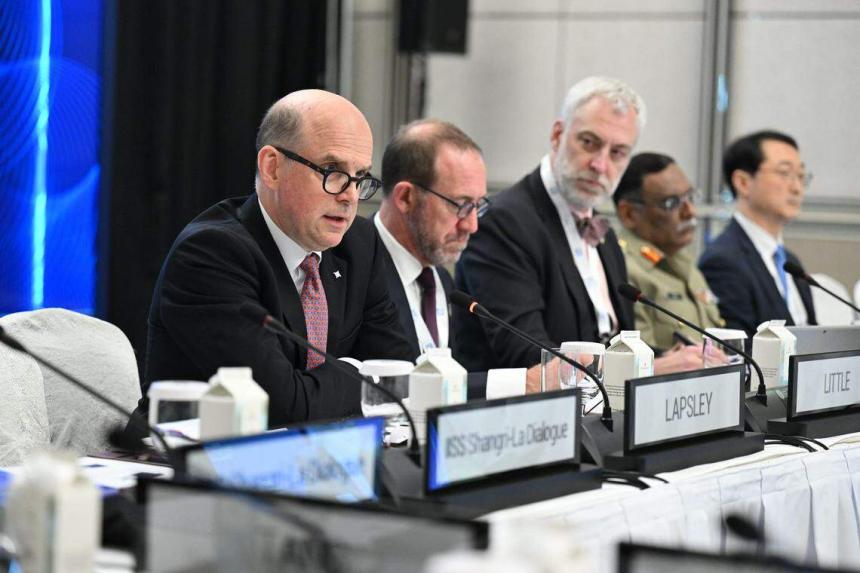SINGAPORE - The North Atlantic Treaty Organisation (Nato) does not wish to operate or expand in the Indo-Pacific, but it wants to be involved and engaged in the region to gain a better understanding of happenings in this part of the world.
This was the view of Nato’s assistant secretary-general for defence policy and planning Angus Lapsley, who spoke during a special session on Nuclear Dimensions of Regional Security, at the IISS Shangri-La Dialogue in Singapore on Friday.
Threats related to nuclear proliferation do not just concern Asia but the rest of the world as well, he said.
“As a Euro-Atlantic alliance, we need to be able to see our security against a wider backdrop, including what’s happening here in Asia. And I think the pace of change in the Indo-Pacific region is starting to have a bigger impact,” he said.
He added that Nato will be holding discussions with Australia, New Zealand, South Korea and Japan.
The senior Nato official also urged Beijing to be more open about its accelerating nuclear weapons build-up, saying that as a global power, China had a responsibility to improve transparency.
His remarks come amid concern in the region over reports of Japan’s discussion with Nato to open an office in the country – possibly by 2024 –to facilitate consultations in the region.
Soon after the announcement, China called for “high vigilance” in the face of Nato’s “eastward expansion”, which it said could have a bearing on regional security.
The transatlantic security grouping is the world’s biggest military alliance, with its 31 member states having a combined force of 3.5 million soldiers.
Mr Lapsley also commented on findings by the US that China was continuing to strengthen its strategic nuclear arsenal and could have 1,000 nuclear warheads by 2030.
The report by the Pentagon, released last November, estimated that by 2035, China will likely possess a stockpile of 1,500 nuclear warheads and an advanced array of missiles.
“That’s not just an evolution but a very major change on the global strategic balance,” Mr Lapsley remarked.
“As a global power, China has global responsibilities,” he noted, adding that Nato remained open to engaging meaningfully in dialogue with China.
Developments in Iran and North Korea on the nuclear front were also of concern, the Nato official said.
“These are problems we worry about because of the precedents being set and the risk of conflict being triggered,” he told the audience.
Participants at the session drew attention to different dimensions of the heightened risk posed by nuclear proliferation.
South Korea’s top nuclear envoy Kim Gunn urged the international community to collectively condemn North Korea’s recent attempt to launch a spy satellite that ultimately failed during launch and crashed into the sea.
Pyongyang had gone on to announce an additional launch that violates United Nations Security Council resolutions, said Mr Gunn, who is the Foreign Ministry’s special representative for Korean peninsula peace and security affairs.
“The prospect of the threat is bleak,” he said.
“Many years ago, it was believed that nuclear weapons would fade away, but the world is still living in its shadows,” he told the audience.


